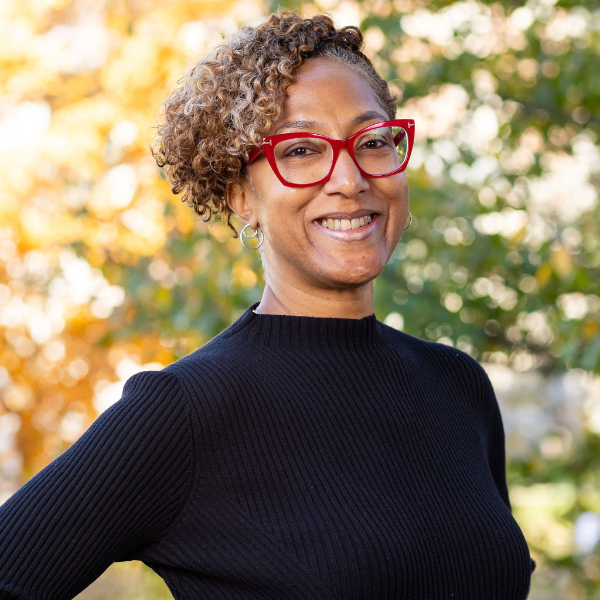New Student Academic Advising

Welcome from the Assistant Dean of Student Success
On behalf of Academic Affairs, welcome to Agnes Scott! We’re so excited for you to embark on your pathway to success! As a new student, you may have many questions about our academic experiences, programs and policies. This portion of the website can answer questions to help you prepare for your academic journey! First-year students, as your first step, you will be contacted by your SUMMIT Advisor and a SUMMIT Peer Advisor (SPA) who will get to know you through reflective conversations and work collaboratively with you to customize your own academic plan. Transfer students, you will also work collaboratively with your SUMMIT Advisor. However, you will also prepare for selecting a faculty major advisor and career coach to learn about impactful experiences that will help you achieve your academic and professional goals. I am happy to answer additional questions you may have. Please email me at mquinichett@agnesscott.edu or stop by Main 128 when you’re on campus to say hi! Dean Q.
Who do you hope to become while at Agnes Scott? What are your strengths and passions? What are your responsibilities to yourself and others?
Our unique team-based advising program is designed to help you explore these questions and thus encourage the habits of critical reflection that will enrich your life well beyond your time at Agnes Scott.
At Agnes Scott you will work with a Team of Advisors focused on your success. Your Team consists of four elements:
- SUMMIT Advising
- Peer Advising
- Major Advising
- Career Advising
SUMMIT Advisors are the foundation of your Team. Your SUMMIT Advisor is assigned to you before your first semester begins. SUMMIT Advisors go well beyond traditional expectations about academic advising. They assist you in integrating your experience at Agnes Scott by providing guidance about course selection, major and career exploration, academic requirements, opportunities such as study abroad, internships and mentored research and how to select the most meaningful co-curricular activities to complement your interests. SUMMIT Advisors will also provide guidance should you have academic difficulty and refer you to additional sources of support when needed.
During your first fall
You will select the next member of your Team of Advisors when you are ready to declare a major, typically at the end of your sophomore year. Your Major Advisor, a faculty member in your major discipline, adds
The final element of your Board integrates career development in your educational plan. Career Coaches from the Office of Internship and Career Development provide one-on-one and workshop-based support to develop the skills and experiences needed to reach your long-term goals.
What are my responsibilities as an advisee?
Come to advising sessions equipped with questions you have about your academic and co-curricular experiences, as well as questions about policies and procedures or the college's curriculum. Be honest with your advisor and ask for help when you need it, but also share your successes. We're here to support you through the ups and downs of your academic life.
When will I meet my advisor?
Starting in July, your SUMMIT Advisor will hold a virtual advising consultation to get to know you, review your answers to questions on the Enrolled Student Form and record your fall course preferences. Once you arrive on campus, you will have one-on-one meetings with your SUMMIT Advisor as needed. First-year students, you will also participate in SUM 110: Academic Foundations Lab, a seven-week course with your SUMMIT Advisor and Peer Advisors. Transfer students will not need to complete SUM 110.
What should I do to prepare for my advising meeting?
- First-year students: read through the descriptions of the required first semester course, LDR 101, and make note of your top choices. Transfer students will not complete LDR 101, but will substitute an appropriate course to meet this requirement.
- Complete the math skills quiz and the appropriate language placement tests on Canvas before June 1 (July 15 for transfer students).
- Submit the Enrolled Student Form by June 1. Answers on this form help your SUMMIT Advisor prepare a suggested list of fall courses for your summer advising meeting.
- Be sure to have official AP score reports and IB or college transcripts sent to the Agnes Scott Registrar by August 1 if you are expecting credit.
In late June, you will receive an email from your admission counselor with information on how to schedule your advising and course registration appointment. In advance of that virtual meeting, you should familiarize yourself with AscAgnes to see what courses we are offering in the coming academic year. You can search for courses by semester, by academic department,
When will I register for my fall courses?
The preferences you discuss with your SUMMIT advisor during the summer advising meeting will be used to register you for fall courses. Once your summer advising meeting concludes in July or August, you will be able to see your fall schedule on AscAgnes. Should you wish to make changes to that schedule, you may do so beginning on August 11. Be sure to let your SUMMIT advisor know of any changes.
I’m worried about the academic challenge of Agnes Scott courses. Is any support available?
Yes! Many students experience challenges with the transition from high school to college. We have a variety of resources to assist you in this transition.
You will also be encouraged to use campus centers for academic excellence such as The Resource Center for Math and Science, the Center for Writing and Speaking and the Center for Digital and Visual Literacy. In addition, most departments have course tutors and tutoring schedules are posted online each semester.
